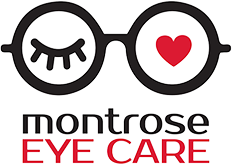
Dry eye syndrome is a common condition that affects millions of people, causing discomfort and impacting daily life. Whether due to aging, environmental factors, or prolonged screen time, dry eye can make it difficult to focus, read, or enjoy daily activities. Understanding its causes, symptoms, and advanced treatment options can help manage the condition effectively.
What Causes Dry Eye Syndrome?
Dry eye occurs when the eyes do not produce enough tears or when the tears evaporate too quickly. Several factors can contribute to this condition, including:Aging: Tear production naturally declines with age, making dry eye more common in older adults.
Screen Time: Extended use of digital devices reduces blinking frequency, leading to faster tear evaporation.
Environmental Factors: Wind, dry climates, and air conditioning can all contribute to increased tear evaporation.
Medical Conditions: Autoimmune diseases, diabetes, and hormonal changes can affect tear production.
Contact Lenses: Long-term contact lens wear can lead to dry eye symptoms.
Medications: Certain antihistamines, antidepressants, and blood pressure medications can reduce tear production.
Eyelid Problems: Blepharitis or meibomian gland dysfunction can disrupt the production or quality of tears.
Common Symptoms of Dry Eye Syndrome
Dry eye symptoms can range from mild discomfort to more severe irritation, impacting vision and daily activities. Common symptoms include:A gritty or sandy sensation in the eyes
Burning or stinging
Redness and inflammation
Sensitivity to light
Blurry vision
Excessive tearing
Why You Need to See an Eye Doctor
If you’re experiencing dry eye symptoms, seeing an eye doctor is essential for proper diagnosis and effective treatment. Dry eye syndrome can have multiple underlying causes, including meibomian gland dysfunction, inflammation, or tear production issues, which require a thorough evaluation to determine the most appropriate course of action. An eye doctor can assess the severity of your condition, identify contributing factors, and develop a personalized treatment plan tailored to your specific needs. Without professional intervention, dry eye can worsen over time, leading to discomfort, blurred vision, and potential damage to the eye’s surface.
Dry Eye Treatment Options
For individuals experiencing persistent dry eye symptoms, treatments such as Envision by InMode offer innovative solutions. At Montrose Eye Care, we provide advanced treatments that target the root cause of dry eye to provide long-lasting relief.FORMA-I is a non-invasive treatment that uses radiofrequency energy to stimulate collagen production and improve the function of the meibomian glands. These glands are responsible for producing the oil layer of tears, which helps prevent tear evaporation. Benefits of FORMA-I include:
Reduction of inflammation and eyelid discomfort
Improved tear film stability
Enhanced meibomian gland function for long-term relief
LUMECCA-I IPL therapy is designed to target inflammation, one of the primary causes of dry eye syndrome. The light pulses help reduce abnormal blood vessels, stimulate natural tear production, and restore healthy oil flow from the meibomian glands. Key benefits of LUMECCA-I include:
Reduction of redness and inflammation
Increased tear production and hydration
Enhanced overall eye comfort
Find Dry Eye Relief at Montrose Eye Care
Dry eye syndrome is more than just an annoyance—it can significantly affect your daily life and long-term eye health. Understanding the causes and symptoms is the first step toward finding effective relief. With advanced treatments like FORMA-I and LUMECCA-I, managing dry eye is more achievable than ever.If you’re experiencing dry eye symptoms, contact Montrose Eye Care to schedule a consultation. We offer personalized treatment plans using the latest technology to restore comfort and improve your eye health. Visit our office in Houston, Texas, or call (713) 300-1477 to book an appointment today.







